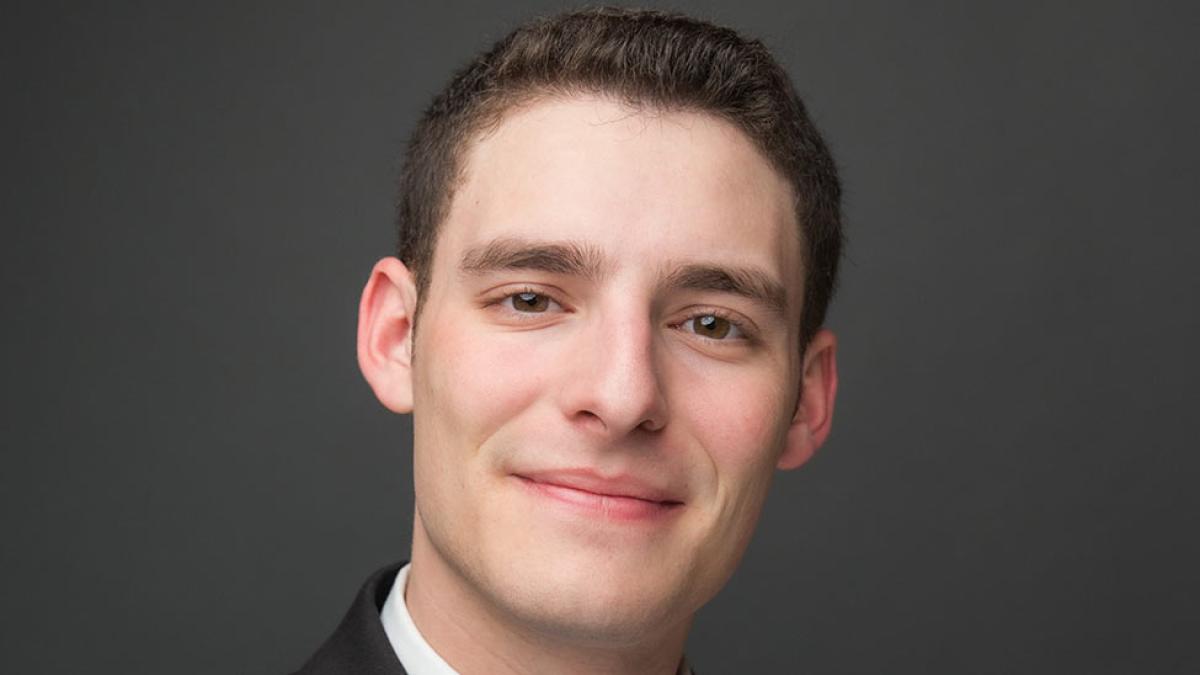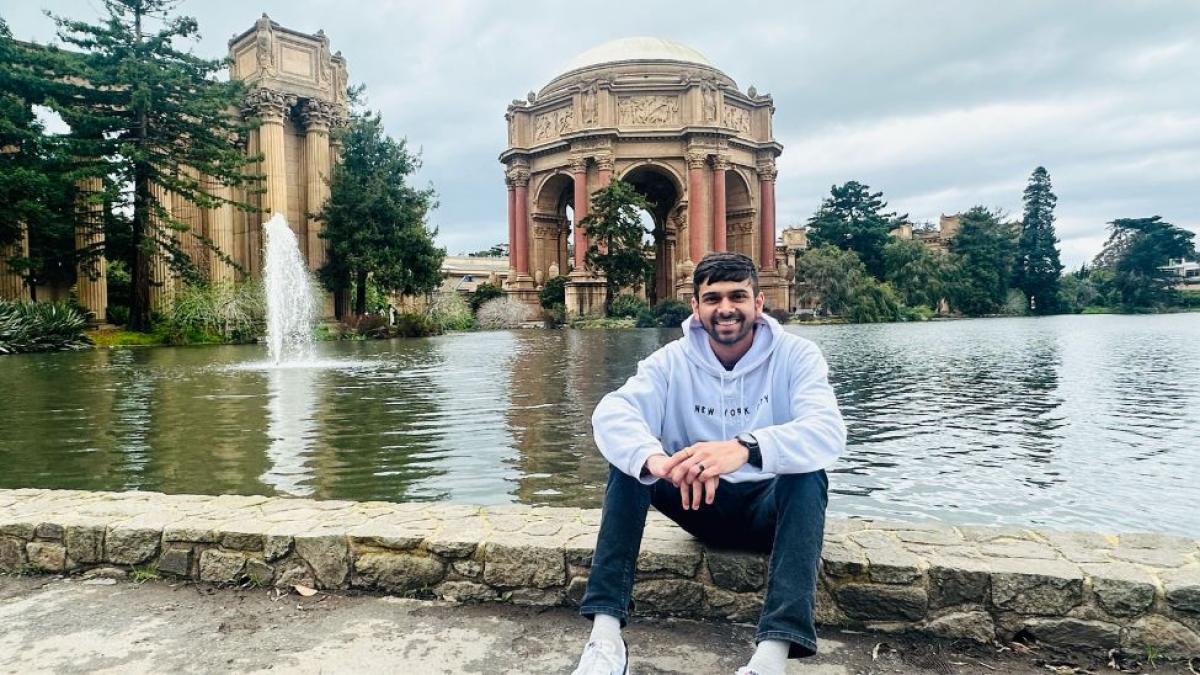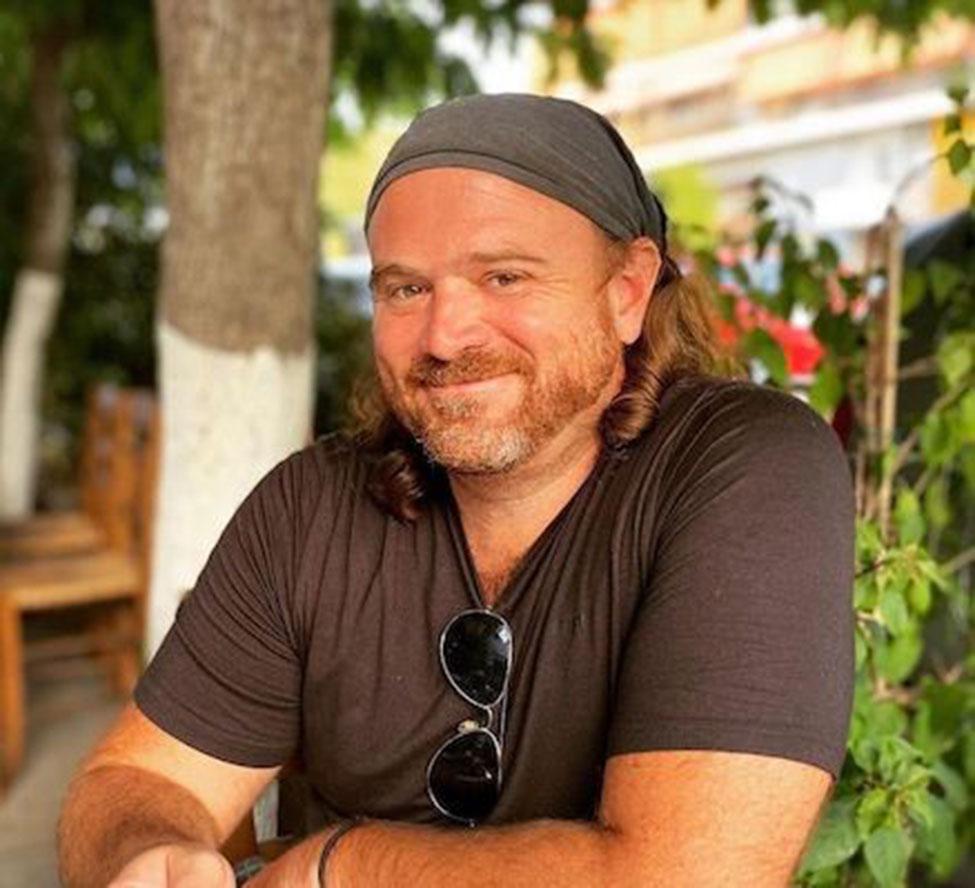
A Talk with Colby Hopkins
As program coordinator of the BA in Writing for Diversity and Equity in Theater and Media (W4DETM), Colby Hopkins creates and facilitates social justice and diversity, equity, and inclusion (DEI) programming for students; cultivates partnerships within and outside of Pace; writes grant proposals, reports, and program assessments; and much more.
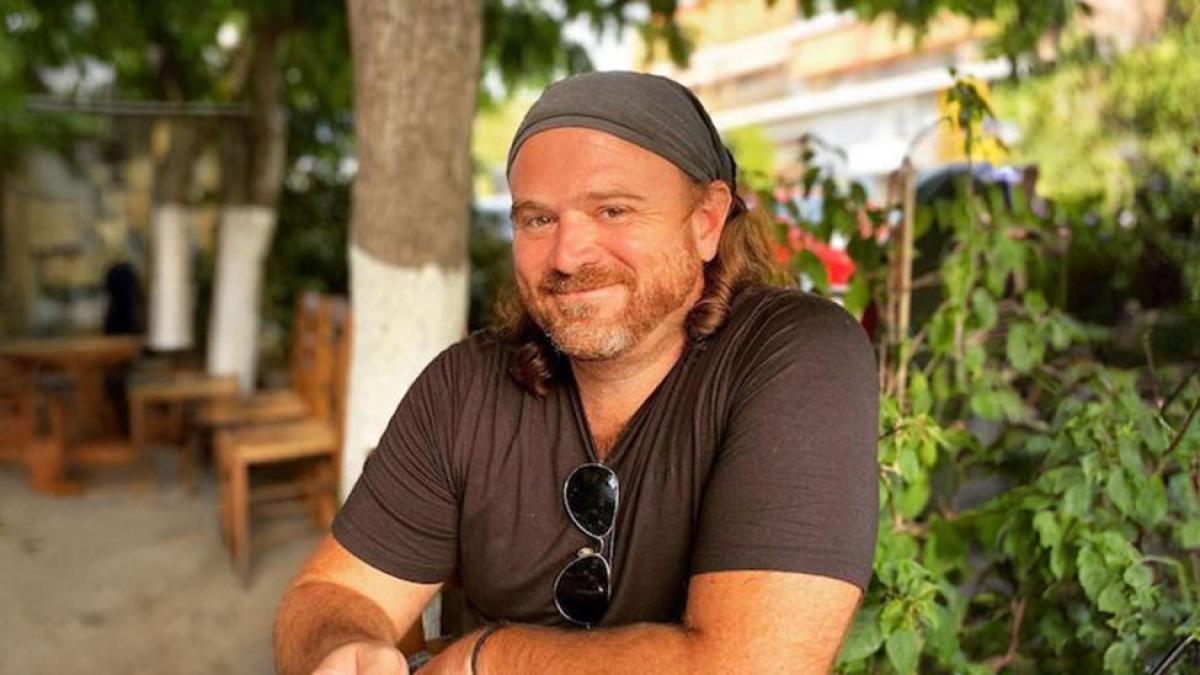

Colby Hopkins
As program coordinator of the BA in Writing for Diversity and Equity in Theater and Media (W4DETM), Colby Hopkins creates and facilitates social justice and diversity, equity, and inclusion (DEI) programming for students; cultivates partnerships within and outside of Pace; writes grant proposals, reports, and program assessments; and much more.
What do you find most meaningful about your work?
The most meaningful aspect of my work is the opportunity to create a supportive and inclusive environment through which students can thrive as their authentic selves, and as writers and social justice advocates who believe in the power of their words. I find immense fulfillment in creating and facilitating programming that not only educates, but also inspires our brilliant, talented, and thoughtful students to explore and address issues of equity and inclusion through their writing, storytelling, and creative projects. I am deeply committed to supporting students to stand in their own authentic voices and be successful, while contributing to a more just and equitable society.
In the W4DETM program, students learn to develop creative content for film, TV, theater, and media, with a focus on promoting DEI and elevating underrepresented voices in the process. What does DEI mean to you and why is dismantling false narratives and telling stories with truth and authenticity important?
To me, DEI often is, but should never be, performative. My concerns about DEI initiatives have always been the hyper focus on diversity and conformity; that is, working with people from different genders and backgrounds who will just continue institutional norms rather than transform them. DEI cannot just about diversity; it’s also about equity and inclusion, which means recognizing and valuing the unique perspectives, experiences, and identities of all individuals, regardless of race, ethnicity, gender, sexual orientation, ability, beliefs, body, neurodivergence, physical abilities, age or background. This is distinct from social justice but a necessary component of it.
Stories build knowledge and evoke emotion and, therefore, stories move people. In an era marked by polarization and misinformation, authentic storytelling serves as a powerful antidote, fostering empathy, understanding, and connection across diverse communities, while functioning as a challenge to embedded power structures. By elevating underrepresented voices, we not only honor the richness of human experience, but also confront systemic inequalities and injustices. Further, authentic storytelling enables us to confront uncomfortable truths, reckon with historical injustices, envision, and work toward a more inclusive and equitable future.
What is an example of recent, engaging W4DETM programming?
I recently designed, coordinated, and facilitated an immersive learning experience focused on community organizing and social movement work, through which students and Assistant Dean for Diversity and Equity in the Arts S. Brian Jones, engaged in activities such as role-playing exercises and practicing one-on-one meetings. These interactive components allowed students to explore theoretical concepts of social justice and community organizing work and engage practical skills while fostering deep conversations. Their active participation and positive feedback affirmed the value of this programming in fostering meaningful perspectives on social justice that informs creative content development. The skills also apply to their industry, and meetings with theater industry professionals, which some of our students participate in, are part of their career development.
In addition, Dean Jones and I collaborated with the student cohort to design a thought-provoking discussion program centered on neurodivergence and accessibility in the arts. We were fortunate to host a director and writer from the groundbreaking Broadway show, How to Dance in Ohio, who enriched the dialogue with their insights and experiences. The discussion organically unfolded, and we delved into the challenges and opportunities for inclusion and representation. This was in addition to topics relating to career paths, challenges, and burn out in the theater industry.
In your observations, what do W4DETM students, who seem to be truly engaged in and excited to be a part of the program, bring to it, and what is it about them that you are most proud of?
The W4DETM students build the program with us because our work is centering their voices. They also bring to their work, community, and the program a palpable sense of passion, creativity, talent, authenticity, and grace that is truly inspiring. What I'm most proud of is the students' grace towards each other as an essential part of our community-building and compassion toward the world which motivates them to create and inspire change. They come from diverse backgrounds and bring with them a wide range of perspectives and experiences, enriching each other and our cohort as a whole. They are dedicated to using their voices and talents to advocate for social justice and equity within the arts. And they demonstrate a deep understanding of the power of storytelling as a tool for change and are eager to explore how they can make a meaningful impact through their creative work. There’s so much to be proud of our students for—they’re exceptional people.
The W4DETM program’s cohort is small, allowing students to collaborate and form connections that continue beyond the classroom. Can you speak of the importance of this unique feature?
In my opinion, community-building with the cohort is the most important aspect of our work; it’s the foundation. I can attest to the immense importance of the small cohort size in the W4DETM program, as this unique feature fosters a close-knit community and intimate learning environment through which students help and support each other’s productions and career paths and feel supported, valued, and empowered to take creative risks and explore new ideas. It promotes collaboration over competition. When a student tells me how much our support means to them, or when I witness them supporting each other, I feel the value of our work.
You have an extensive background in social justice and political activism, having coordinated many peaceful demonstrations and civil disobedience actions, as well as authoring two books. What are your thoughts on the importance of civic engagement, a key part of the Pace Path?
I firmly believe in the importance of civic engagement and solidarity as cornerstones of a healthy democracy, as they empower individuals to participate actively and collectively in the decision-making processes that shape their lives, communities, and societies, ensuring that diverse voices are heard and represented. I believe, for major change to be possible, people must recognize the common sources of their struggles and commit to solidarity across them. The Pace Path's emphasis on civic engagement as well as the service and social justice components of the W4DETM program, encourage students to become informed and active citizens equipped to address complex societal challenges. By engaging in community service, advocacy, and political activism, they contribute to positive social change, as well as develop critical thinking skills, empathy, and a sense of responsibility towards others. The students have repeatedly affirmed that these programs develop their understanding of social justice work and help their creative content development.
The W4DETM program is made possible through a partnership between Pace and the Edmond de Rothschild Foundation. In your opinion, why is funding for the arts important?
Arts, especially those that meaningfully challenge the status quo, are not usually valued in a purely capitalist model, so support from philanthropic institutions can play an essential role in providing resources for unique and necessary educational initiatives. Without the support of the Edmond de Rothschild Foundation, we wouldn’t be able to create this space and environment for our students to thrive—a space that helps empower them to pursue their passions, find their voices, and realize their artistic potential with a specific aim towards creating social change. Furthermore, the arts have the power to inspire, provoke thought, foster empathy, and move people, serving as a catalyst for social change and collective action. The students in the W4DETM major are realizations of this potential.
What are your thoughts on the liberal arts serving as a catalyst for change in society?
The liberal arts serve as a powerful catalyst for change in society by fostering critical thinking, empathy, and a deeper understanding of human experience. Liberal arts take a holistic approach which emphasizes the importance of dialogue, debate, and critical inquiry, creating spaces for intellectual exploration, which we foster in the W4DETM program. This commitment to open inquiry and discourse fosters a culture of innovation and creativity, where students learn from each other and develop their own voices as a path to envisioning and creating a better, more equitable world. Additionally, the liberal arts promote empathy and understanding by exposing students to diverse people, cultures, histories, and perspectives. In our work, this is critical for students to develop their own voices and write deeper, more meaningful stories.
What are you working on currently and what’s next for you and the program?
Currently, I’m working with Dean Joneson developing the scholarship application for our upcoming scholarship program, we’re planning a couple of trips to see Broadway and off Broadway shows, exploring partnerships for service programs over the summer, developing our discussion event with How to Dance in Ohio guests into a workshop for Pace’s Social Justice Week in the fall, and getting ready for our first senior’s capstone project, a professional produced reading of their full length script, and graduation!
Elisabeth Haub School of Law at Pace University Announces New York State Chief Judge Rowan D. Wilson as 2024 Commencement Speaker
The Elisabeth Haub School of Law at Pace University is pleased to announce that the Honorable Rowan D. Wilson, Chief Judge of the New York State Court of Appeals, will deliver the Law School’s commencement address at its 46th Commencement Ceremony, to be held on May 20, 2024, at the USTA Billie Jean King National Tennis Center in Queens.
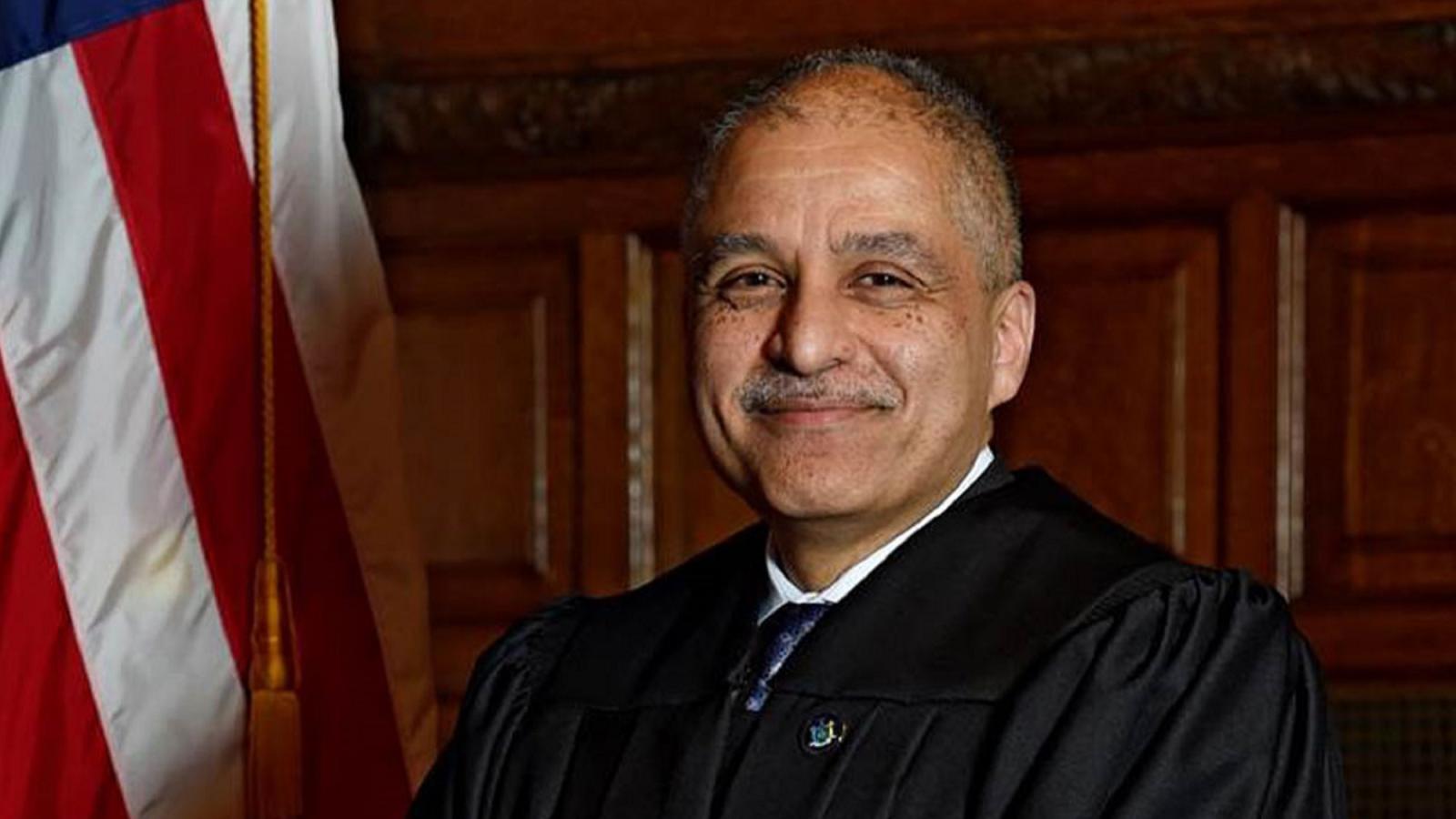
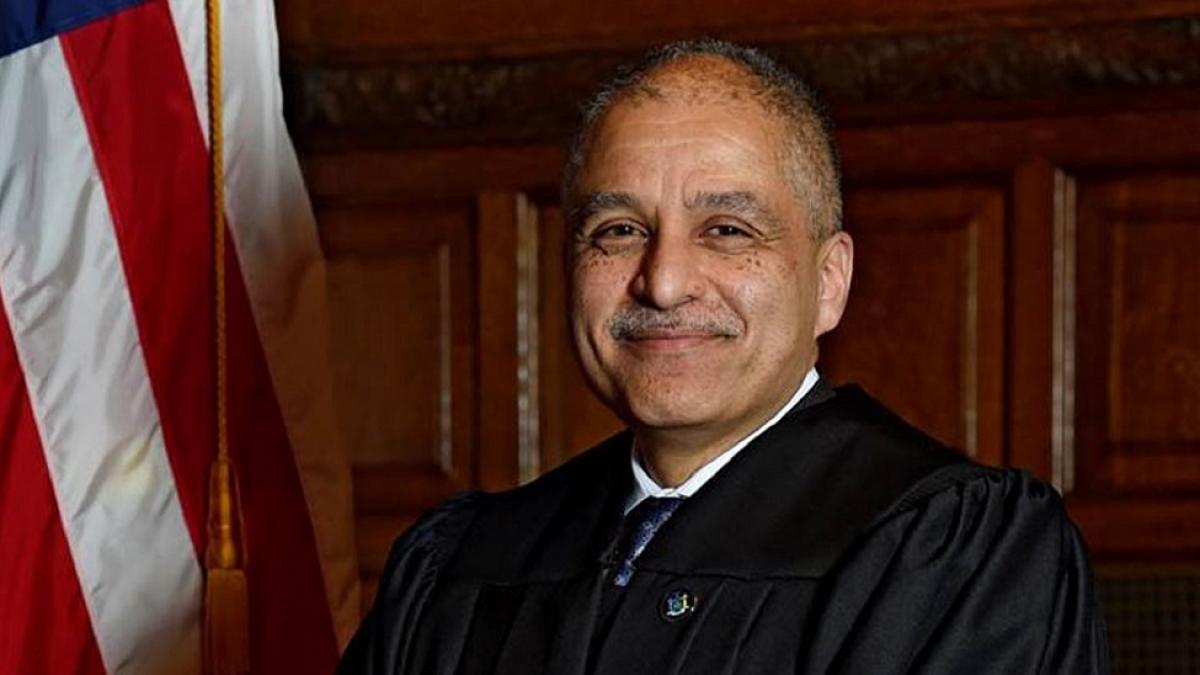
The Elisabeth Haub School of Law at Pace University is pleased to announce that the Honorable Rowan D. Wilson, Chief Judge of the New York State Court of Appeals, will deliver the Law School’s commencement address at its 46th Commencement Ceremony, to be held on May 20, 2024, at the USTA Billie Jean King National Tennis Center in Queens.
Judge Wilson will also receive the Doctor of Laws, honoris causa, the highest honor conferred by the Law School, recognizing his lifelong contributions to public service and the legal profession.
“Judge Wilson has had a distinguished career as a lawyer and a jurist, and in his current role as New York’s highest-ranking judge, is one of the nation’s leading voices advancing equity, justice, and the rule of law,” said Horace E. Anderson Jr., Dean of the Elisabeth Haub School of Law. “He is a trailblazer who has made significant individual contributions to the legal profession during his exemplary career. His example highlights the diverse paths and opportunities that are available to those who choose to use their legal education to pursue their passions and make an impact on society. We couldn’t be more pleased that Judge Wilson will join us as the Law School’s 2024 Commencement Speaker, imparting his advice to our students as they take the next step in their legal careers.”
Governor Andrew M. Cuomo nominated Judge Wilson to serve as an Associate Judge of the Court of Appeals on January 15, 2017, and the New York State Senate confirmed his nomination on February 6, 2017. On April 10, 2023, Governor Kathy Hochul nominated Judge Wilson to serve as Chief Judge of the Court of Appeals and the State of New York. The New York State Senate confirmed his nomination on April 18, 2023.
Judge Wilson is the first person of color to lead the Court of Appeals, the highest court in New York State, located in Albany. As Chief Judge of the State of New York, he is responsible for the administration of the entire New York’s Unified Court System, which has 16,000 employees, a $3 billion budget, and administers justice to a population of nearly 20 million residents.
Judge Wilson was born in Pomona, California, in 1960, and grew up in Berkeley, California. He received his A.B. degree from Harvard College in 1981, and his J.D. degree from Harvard Law School in 1984. He was admitted to the bar of the State of California in 1985, and the bar of the State of New York in 1987. From 1984 to 1986, he served as a law clerk to the Honorable James R. Browning, Chief Judge of the U.S. Court of Appeals for the Ninth Circuit, based in San Francisco.
In 1986, Judge Wilson joined the firm of Cravath, Swaine & Moore in New York City as an associate, and was elected to partnership there in 1991, in which position he continued until February 2017. While there, he handled a wide variety of matters, including antitrust, intellectual property, securities and common-law fraud, contract, labor and employment, civil rights and first amendment issues, and he rose to become the firm’s first partner of color.
Demonstrating a commitment to the community, Judge Wilson has served on the boards of several charitable and not-for-profit organizations including the Lawyers Committee for Civil Rights Under Law, the National Center for Law and Economic Justice, and the Neighborhood Defender Service of Harlem.
The 2024 Commencement Ceremony for Elisabeth Haub School of Law at Pace University will be live-streamed at 9:45 a.m. EST on Monday, May 20, 2024, from Louis Armstrong Stadium, USTA Billie Jean King National Tennis Center in Flushing, NY. For more information, visit the Commencement website.
Environmental Justice and Human Rights Scholar Professor Rebecca Bratspies Delivers Annual Lloyd K. Garrison Lecture on Environmental Law
Professor Rebecca Bratspies delivered the Annual Lloyd K. Garrison Lecture on Environmental Law on Tuesday, April 16 on "Mapping Injustice: Race, Place, and Environment in New York City." The Lloyd K. Garrison Lecture on Environmental Law was established in memory of Lloyd K. Garrison in 1995.
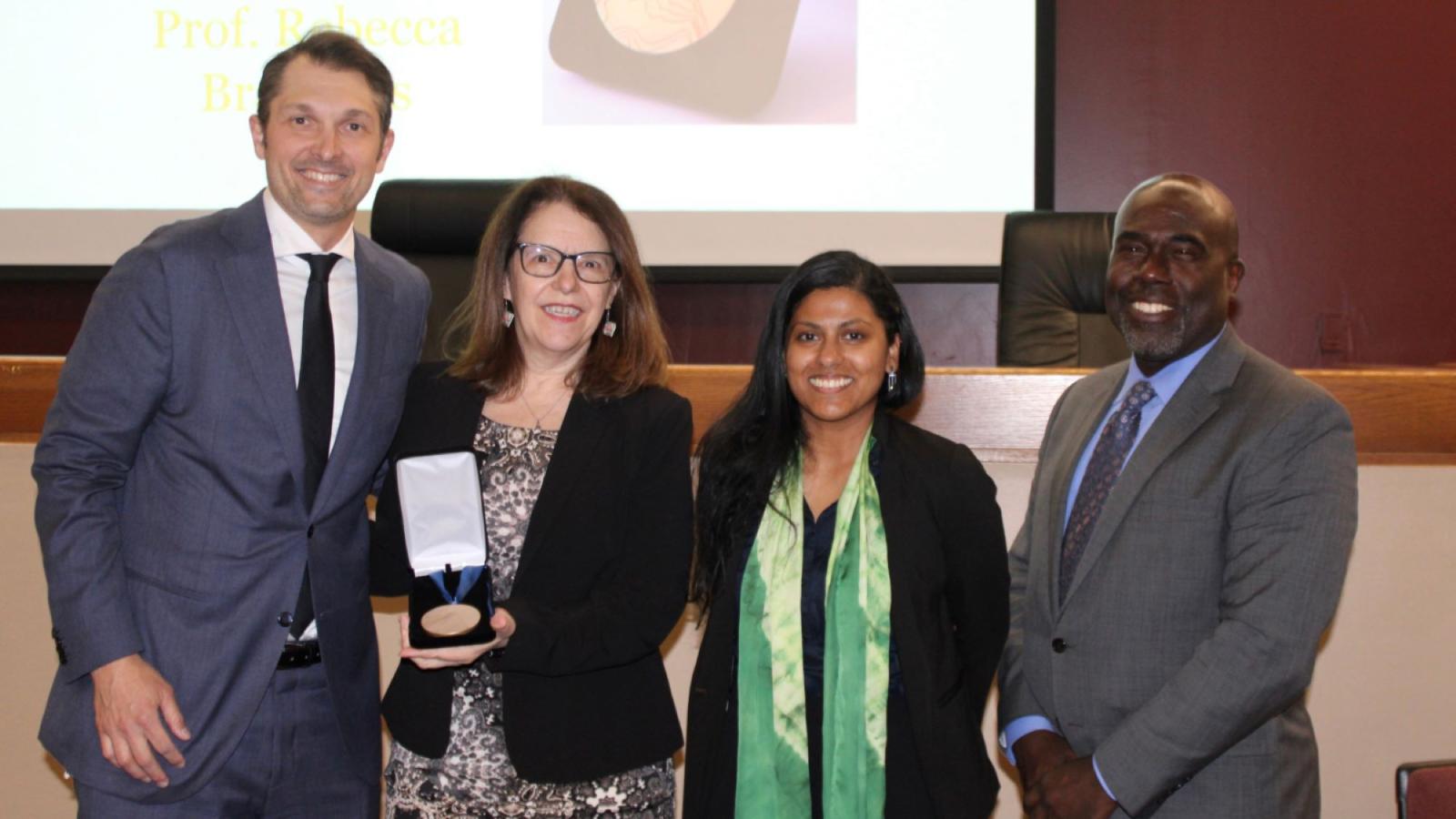
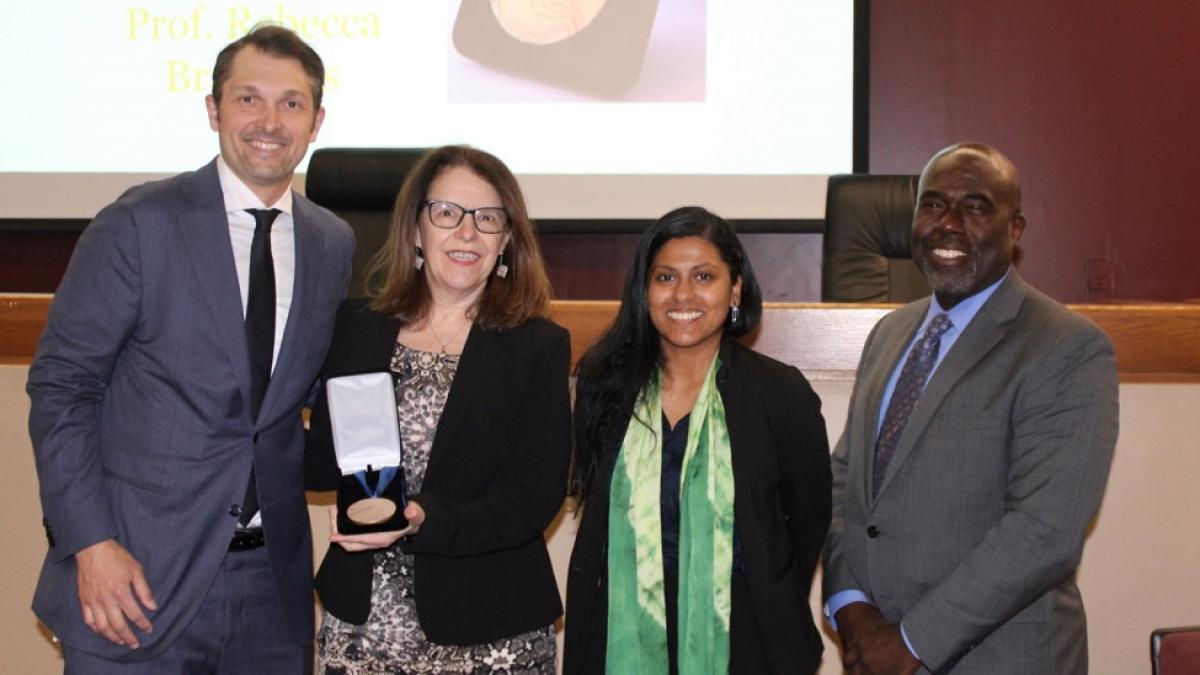
Professor Rebecca Bratspies delivered the Annual Lloyd K. Garrison Lecture on Environmental Law on Tuesday, April 16 on "Mapping Injustice: Race, Place, and Environment in New York City." The Lloyd K. Garrison Lecture on Environmental Law was established in memory of Lloyd K. Garrison in 1995. Professor Rebecca Bratspies currently serves as a Visiting Professor of Environmental Law and Haub Visiting Scholar at the Elisabeth Haub School of Law at Pace University. She is also a Professor at CUNY School of Law, where she is the founding director of the Center for Urban Environmental Reform. While at Haub Law, Professor Bratspies is teaching Administrative Law and a Health and the Environment seminar.
Dean Horace E. Anderson Jr. provided the audience with the background of the Annual Lloyd K. Garrison Lecture on Environmental Law and the importance of the lecture to the Haub Law community. Associate Director of Environmental Law Programs & Adjunct Professor at Haub Law, Achinthi Vithanage, introduced Professor Rebecca Bratspies. During her introduction, Professor Vithanage noted Professor Bratspies’ impressive background and the impact she has had on her personally and on the larger environmental law community. Professor Vithanage noted that Professor Bratspies is a well-known environmental justice scholar, a widely published and cited scholar, a human rights advocate, a comic book author, a dedicated educator, an engaged member of the legal profession and academy, a resident historian, a mentor for young academics, a compassionate colleague, and more. After the heartfelt introduction concluded, Gilbert and Sarah Kerlin Distinguished Professor of Environmental Law and Associate Dean of Environmental Law Programs and Strategic Initiatives Jason Czarnezki presented Professor Bratspies with the Garrison Award and Medal.
Professor Bratspies started her lecture by noting that her academic interest focuses on “infrastructure and how the way that we build our city impacts communities and in particular the way that we distribute the benefits and burdens among and between communities.” Professor Bratspies focused her lecture on Environmental Justice, which she describes as having at least two rough components: “fair treatment, a substantive outcome” and “meaningful involvement,” which can be described as a procedural component. She used these components throughout her lecture to discuss the “highly racialized inequality” that exists today, how we got here, and what we can do about it. Professor Bratspies spoke of the role that lawyers play, where “identifying problems as lawyers is only the start, our job is how to move forward and how to solve problems, not just to point them out.”
Professor Bratspies chronicled the history of New York, starting with the 1890’s, and the evolution of housing in New York from single-family to tenement style buildings and the progression of events and laws and agencies. Throughout her lecture, Professor Bratspies utilized the visual tools of maps to display the evolution of structural racism. As she detailed the evolution of New York and structural racism, Professor Bratspies came to the recent map showing New York City’s Environmental Justice Areas, which was produced with advisement by the Environmental Justice Advisory Board, which Professor Bratspies sits on. She noted the importance that this map will play in New York City making a change and dismantling the system to build a fairer one, which will be aided by the recently passed environmentally focused laws that are helping to create a better environmental future for all. She concluded her lecture discussing several current examples of ways that actual change is being moved forward and overburdened communities’ needs and desires are being met. One example includes the closing of Rikers Island and the proposition for Renewable Rikers. Professor Bratspies worked with environmental justice advocates and the Close Rikers Coalition to propose that when Rikers is closed that several things happen, including dedicating a portion of the Island to large scale solar energy, to building a modern wastewater treatment facility, to removing polluting infrastructure from historically overburdened communities, and importantly to ensure these changes happen with the participation and involvement by those most impacted by mass incarceration.
Professor Bratspies has written scores of law review articles which have been published in a variety of prestigious publications. Her most recent book Naming Gotham: The Villains, Rogues and Heroes Behind New York Place Names, won the New York Public Historians 2023 award for Excellence in Local History. Her co-authored textbook Environmental Justice: Law Policy and Regulation is used in schools across the country. Professor Bratspies is perhaps best known for The Environmental Justice Chronicles—her award winning environmental justice comic books Mayah’s Lot, Bina’s Plant, and Troop’s Run, made in collaboration with artist Charlie LaGreca-Velasco. EPA recognized this work with the 2023 Clean Air Act Award for Excellence in Education/Outreach.
Professor Bratspies is a member-scholar with the Center for Progressive Reform, a board member of the Environmental Law Collective, and a member of the NYC Bar Environmental Committee. ABA-SEER honored her work with its 2021 Commitment to Diversity and Justice Award. She was named the Center for International Sustainable Development Law’s 2022 International Legal Specialist for Human Rights Award, and her environmental justice advocacy has been awarded the PSC-CUNY “In It Together” Award, and the Eastern’ Queens Alliance’s Snowy Egret Award. In 1994-95, she was a Luce Scholar seconded to the Republic of China Environmental Protection Administration in Taipei, Taiwan. Before that, she served as a law clerk to the Honorable C. Arlen Beam on the Eighth Circuit Court of Appeals. Professor Bratspies holds a JD cum laude from the University of Pennsylvania, and a BA in Biology from Wesleyan University.
After the lecture, audience members had an opportunity to comment and ask questions and a reception immediately followed the Garrison Lecture.
Lloyd K. Garrison Lecture History
Over forty-five years ago, Lloyd K. Garrison and his associate, Albert K. Butzel, of Paul, Weiss, Rifkind, Wharton & Garrison, won the landmark decision to preserve Storm King Mountain on the Hudson River. This victory for the Scenic Hudson Preservation Conference did more than safeguard "an area of unique beauty and major historical importance" - it inaugurated what today we recognize as the field of environmental law.
Standing in court to protect nature, citizen suit legislation, the environmental impact statement process, and the balancing of economics with the preservation of scenic beauty and historic resources: these are all rooted in Scenic Hudson Preservation Conference v. Federal Power Commission, 354 F.2d 608 (2d Cir. 1965). The Lloyd K. Garrison Lecture celebrates the vision, public spirit and life of this attorney whose legal acumen led citizens in their successful advocacy of environmental quality at Storm King.
Lloyd K. Garrison passed away in 1991. For all his 93 years, Garrison devoted his brilliance and indefatigable energy to building a humane and caring society, respectful of the Rule of Law. Consistent with this dedication, Lloyd K. Garrison took up the citizens’ call to represent the Scenic Hudson Preservation Conference in its struggle to protect the Hudson River Gorge at Storm King Mountain. With characteristic enthusiasm he championed public participation rights for the community’s environmental interest, just as he did for civil rights and liberties. The Scenic Hudson victory is a living testament to Garrison's ever hopeful spirit.
The Lloyd K. Garrison Lecture on Environmental Law was established in his memory in 1995, four years after his death, and continues in his honor.
Press Release: Pace University Premiered ‘The Cooper’ Documentary at Jacob Burns Film Center
Pace University’s documentary film team – PaceDocs –premiered “The Cooper: Crafting the Soul of the Cask” on Thursday, May 2, 2024 at the Jacob Burns Film Center.
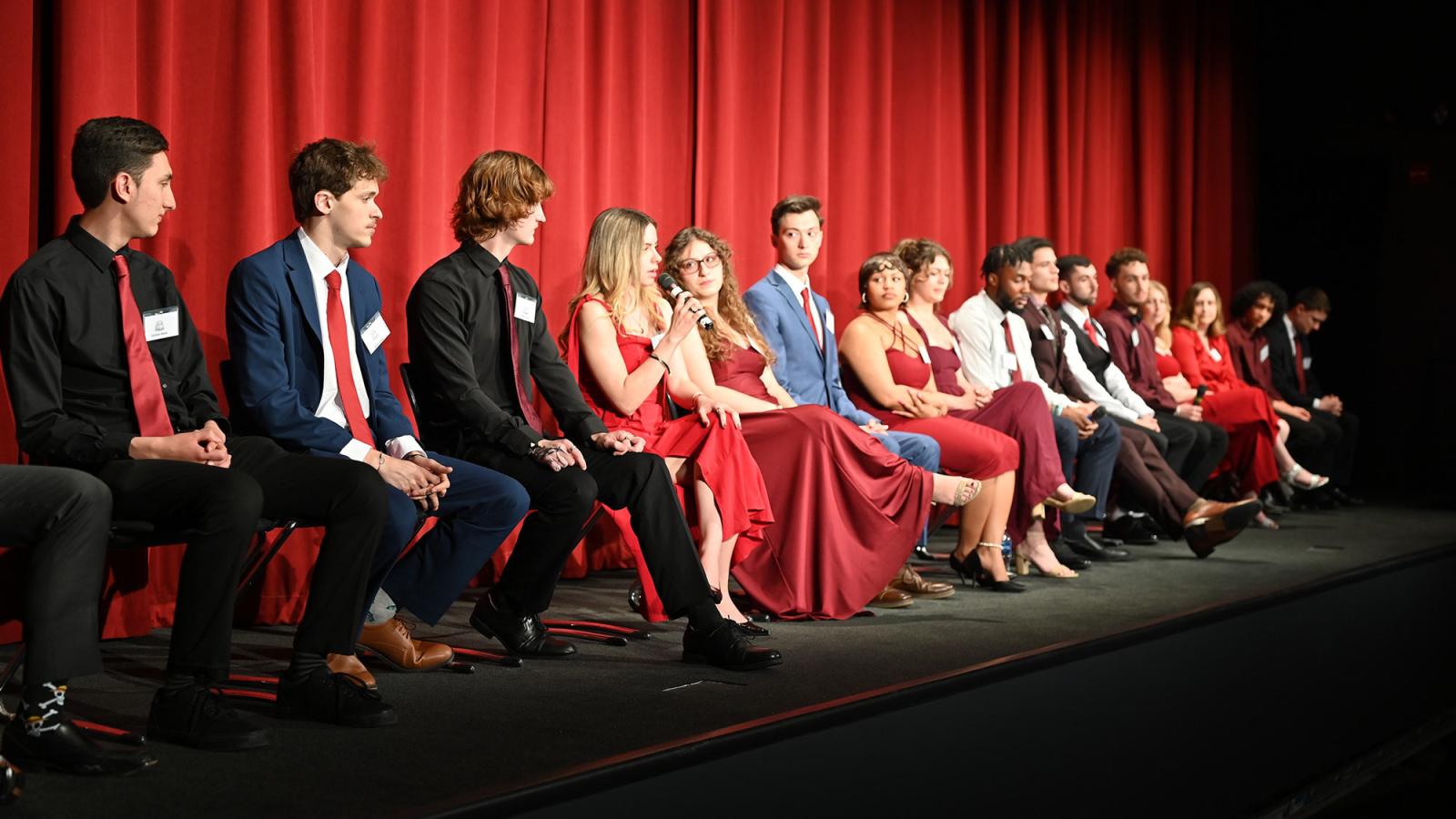
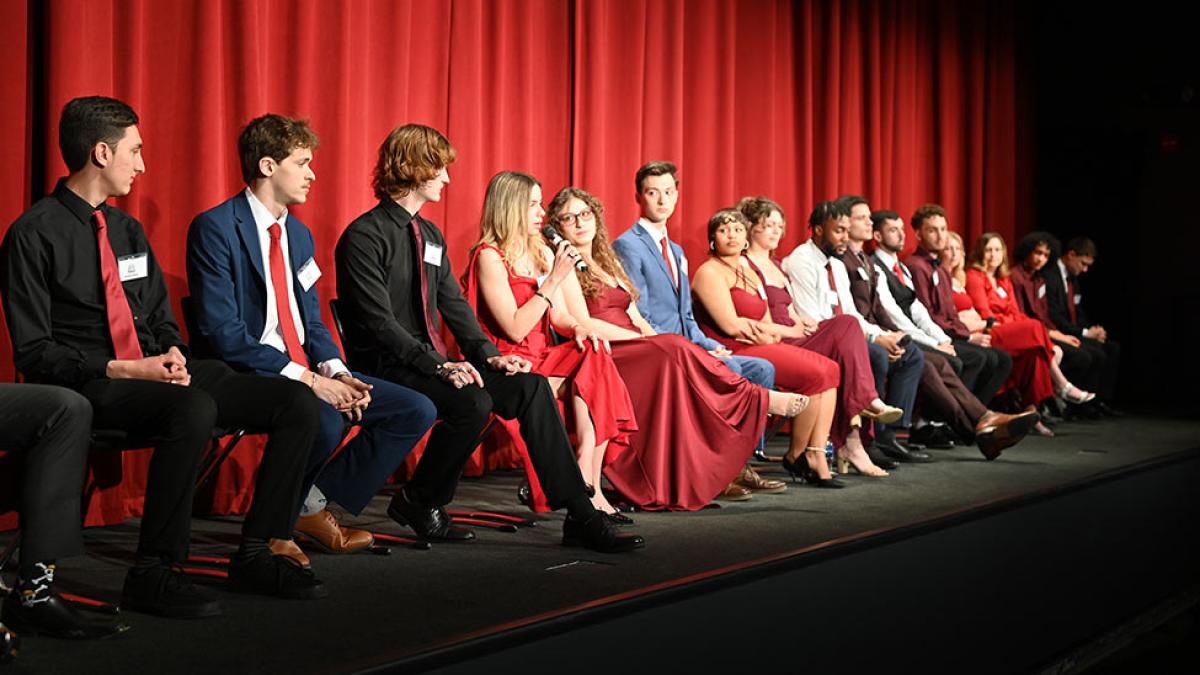
The PaceDocs Team focuses film on the craft of barrel making
For the first time, documentary premieres in English and Spanish
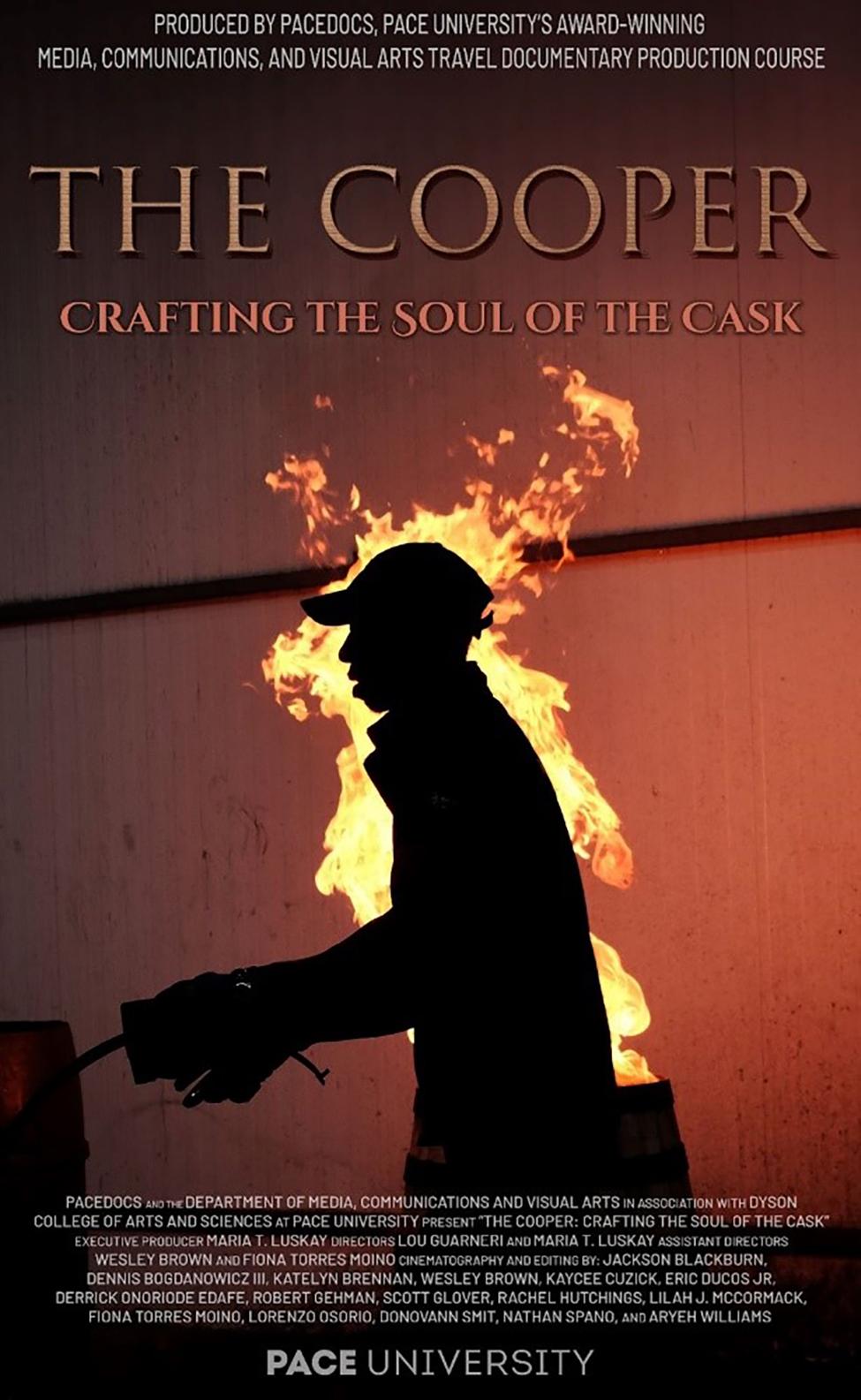
Pace University’s documentary film team – PaceDocs –premiered “The Cooper: Crafting the Soul of the Cask” on Thursday, May 2, 2024 at the Jacob Burns Film Center.
For the first time ever, PaceDocs will be premiering a documentary in both English and in Spanish. The English version premiered at the Jacob Burns Film Center while the Spanish version will debut in Montilla and Cordoba, Spain on May 13.
The documentary was produced by Dyson College of Arts and Sciences Professors Maria Luskay and Lou Guarneri, and Pace University’s documentary film team.
The PaceDocs team collaborated with José Buendía Picó, a well-known Spanish musician and composer, to provide the music to an audiovisual story. Pico has won 14 composition awards.
“The Cooper” is an exploration of the art of cask making, also known as cooperage. Its rich history that can be traced back to ancient civilizations, with evidence of wooden containers used for storing and transporting liquids found in archaeological sites dating as far back as 2690 BCE in Egypt. The type of cask and the type of wood used in winemaking can significantly influence the taste, aroma, and characteristics of wine in Spain, as in other winemaking regions around the world.
The documentary was filmed in the Andalusian region of Spain, specifically Montilla-Mariles over the course of several weeks.
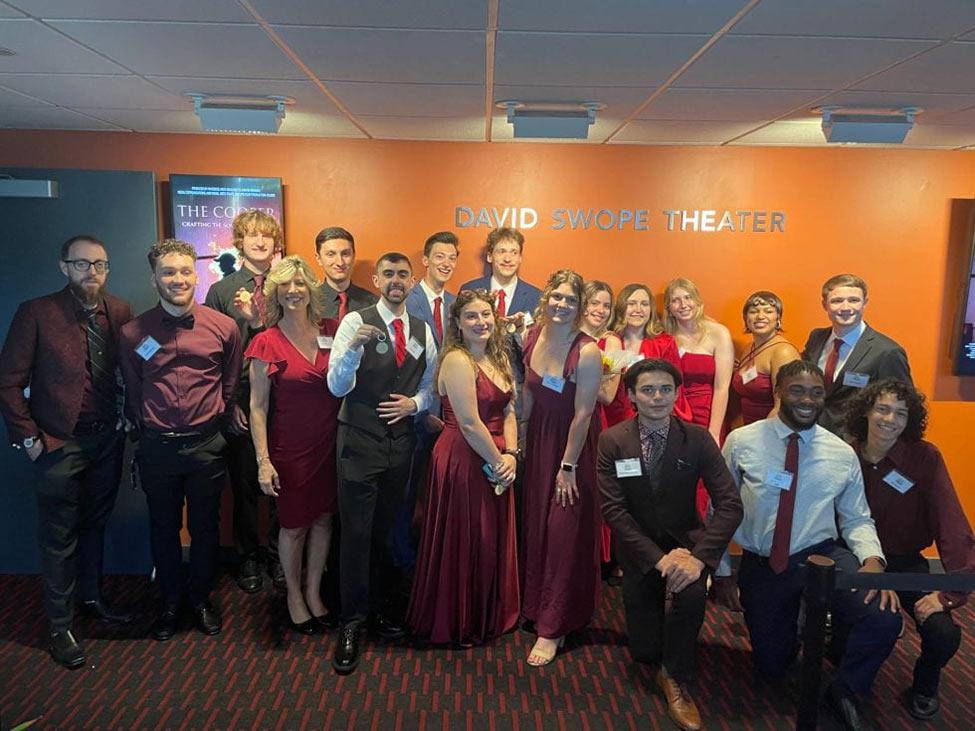
“The PaceDocs team, under the leadership of Professor Maria Luskay, has once again produced a professional, fascinating and timely film,” said Marvin Krislov, president of Pace University. “ ‘The Cooper’ is another great example of the hands-on experience that uniquely captures the tradition and rich history of cask making. I marvel at the consistent excellence and talent in this program and am impressed by this group of filmmakers.”
The documentary is the focus of the popular class, “Producing the Documentary”, which is part of the Dyson College of Arts and Sciences at Pace University’s highly regarded film program that requires students complete a full-length environmentally themed documentary within 14 weeks. During the process, students learn teamwork, problem-solving, research, and organization, along with technical skills such as lighting, sound, camera work, interviewing, and other real-life lessons necessary to complete a film.
“Sharing this immersive experience with our students is incredibly rewarding and educational for all that are involved,” said Professor Luskay, a faculty member with the department of media, communications, and visual arts. “In addition to filming on-location in Spain and learning about difficult cultures, our team was tasked with producing, filming, and editing a professional quality documentary on the tightest of timelines. The lessons and the memories will no doubt last a lifetime and serve them well in their professional pursuits.”
A blend of graduate and undergraduate students, they were moved by the experience of working on and producing a film of professional quality.
“I wore many hats on the documentary, but one of them was story producer,” said Lilah McCormack, a digital journalism major from Dexter, Maine. “I worked a lot in the editing room, making sure the editing was aligning with the story we wanted to tell. I was scheduling folks to be in the editing room and I did some graphic design with making the poster. I also made the trailer that debuted on Youtube.”
McCormack said there were challenges that had to be met as well. “The biggest challenge I faced was managing my time. It was a big undertaking, but I expected it. There was also the short time frame we had to edit and finalize the whole documentary. It was run and gun from the time we got back from Spain, but we did it.”
Nathan Spano, a digital cinema and filmmaking major from Delran, New Jersey, agreed there were challenges. “Post-production was our biggest challenge,” he said. “There was a time crunch and we had very specific deadlines. We had tech check and then notes to run through.”
“While we were filming, setting up interviews was hard because you had to be in and out and make sure audio quality was right and everything was set right with the cameras. It was a such a learning experience for me and I think it is a great opportunity for students in general.”
For Eric Ducos, a film and screen studies major from Woodside, Queens, the weather was a bit challenging. “It was raining the whole week and that is unusual for Montilla,” he said. “It is usually dry and hot and the sun is always out. We had to do a lot of adapting around those circumstances. We had to move a lot around and move interviews indoors.”
Fiona Torres Moino, a film and screen studies major from Buenos Aires, had a much-needed skill on set. “I am a native Spanish speaker and most of our subjects spoke only Spanish,” she said. “In the hotel and in post-production, I needed to do a lot of translation. One of the biggest challenges was the Spanish accent was very strong. Even though I am a native Spanish speaker, it took me a while to get used to the different dialect and words they use. It was a big challenge, but it worked.”
“The Cooper” continues a proud tradition of producing high quality, meaningful, and award-winning films. In recent years, Pace filmmakers have produced documentaries around the globe focusing on a number of topics, including the farm-to-table food movement in France (2023); how oysters depend on the ebb and flow of tides (2022); the importance of bees as pollinators in our food supply (2021); the impact of earthquakes in Hawaii (2019); the endurance of the people of Puerto Rico in the aftermath of Hurricane Maria (2018); Cuba at a cultural crossroads (2016); reviving Curacao’s coral reefs (2015); as well as many other poignant films.
“Dyson College’s student filmmakers have produced another moving documentary that delves into the important and fascinating history of cask making,” said Tresmaine R. Grimes, dean, Dyson College of Arts and Sciences and School of Education, and interim dean for the Sands College of Performing Arts. “The students learn and perfect their craft while educating us all. I am so moved by the talents of this team and the compelling film they have made. Congratulations to them and Professors Luskay and Guarneri for another impressive PaceDocs production.”
About Pace University
Since 1906, Pace University has been transforming the lives of its diverse students—academically, professionally, and socioeconomically. With campuses in New York City and Westchester County, Pace offers bachelor, master, and doctoral degree programs to 13,600 students in its College of Health Professions, Dyson College of Arts and Sciences, Elisabeth Haub School of Law, Lubin School of Business, Sands College of Performing Arts, School of Education, and Seidenberg School of Computer Science and Information Systems.
About Dyson College of Arts and Sciences
Pace University’s liberal arts college, Dyson College, offers more than 50 programs, spanning the arts and humanities, natural sciences, social sciences, and pre-professional programs (including pre-medicine, pre-veterinary, and pre-law), as well as many courses that fulfill core curriculum requirements. The College offers access to numerous opportunities for internships, cooperative education and other hands-on learning experiences that complement in-class learning in preparing graduates for career and graduate/professional education choices.
Renewing Oceans: The Bio-Brick Revolution
Seidenberg grad student Shubham Harishchandra Madhavi is making waves in the fight against climate change. His recent victory in the Project Planet USA contest, securing a $15,000 grant, has propelled his innovative concept into the spotlight.
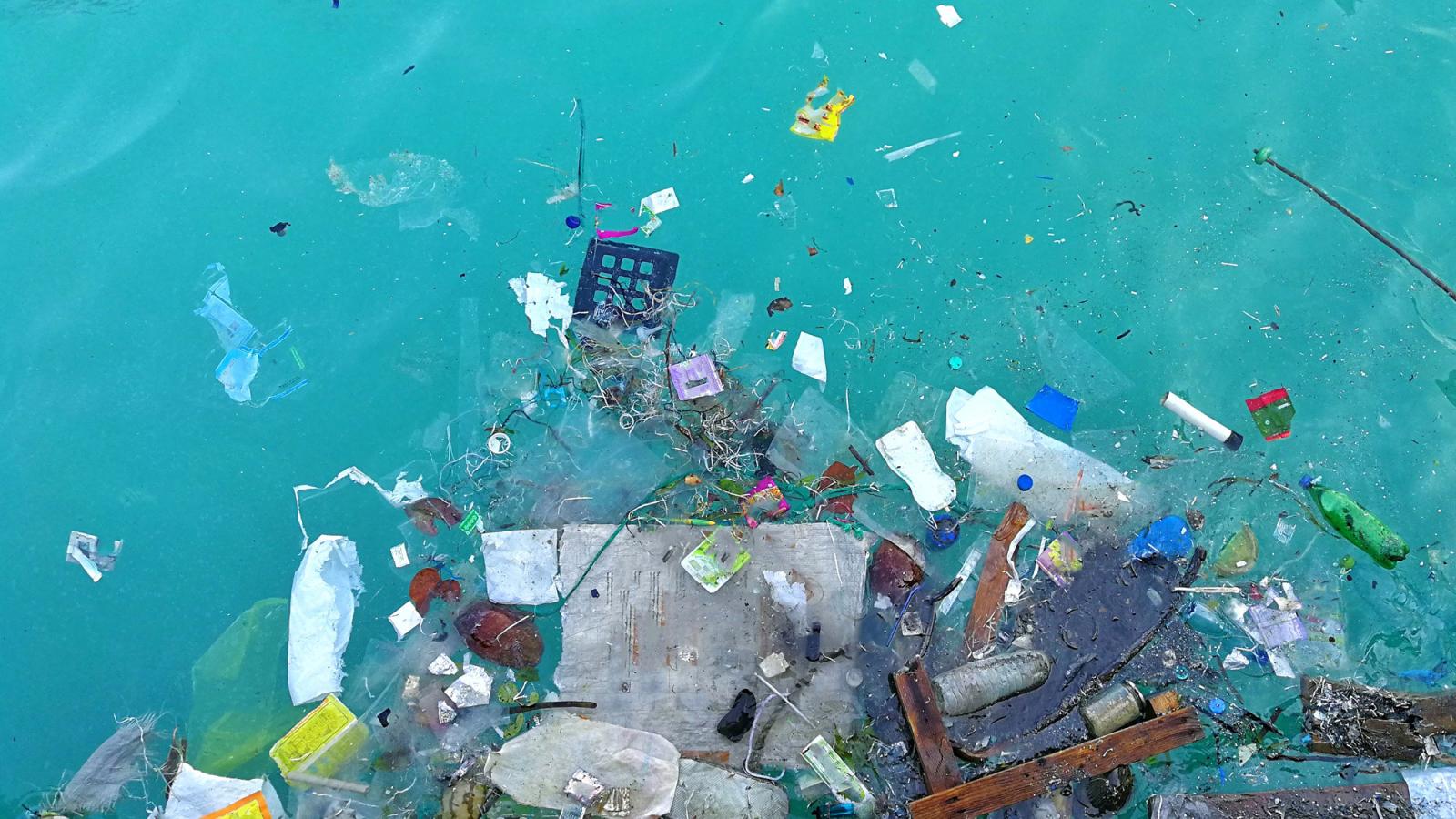
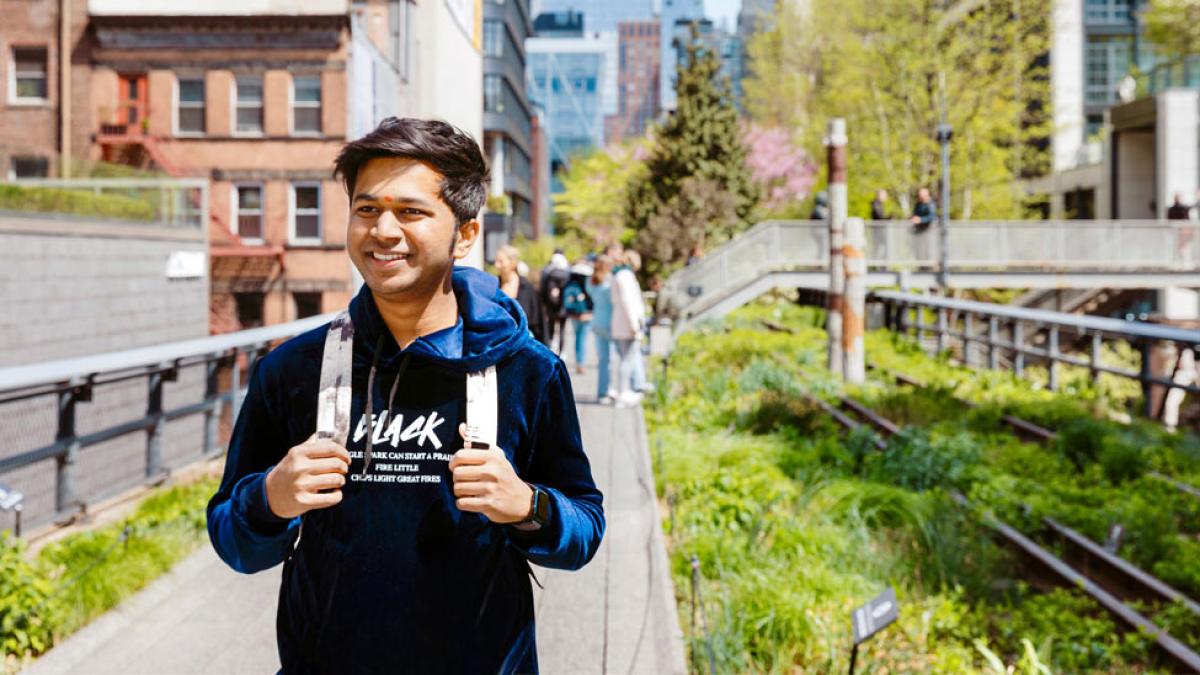
In the heart of New York City, amid the bustling streets and towering skyscrapers, Shubham Harishchandra Madhavi ‘24, a graduate student at Pace’s Seidenberg School, is making waves in the fight against climate change. His recent victory in the Project Planet USA contest, securing a $15,000 grant, has propelled his innovative concept into the spotlight, igniting hope for a greener, more sustainable future.
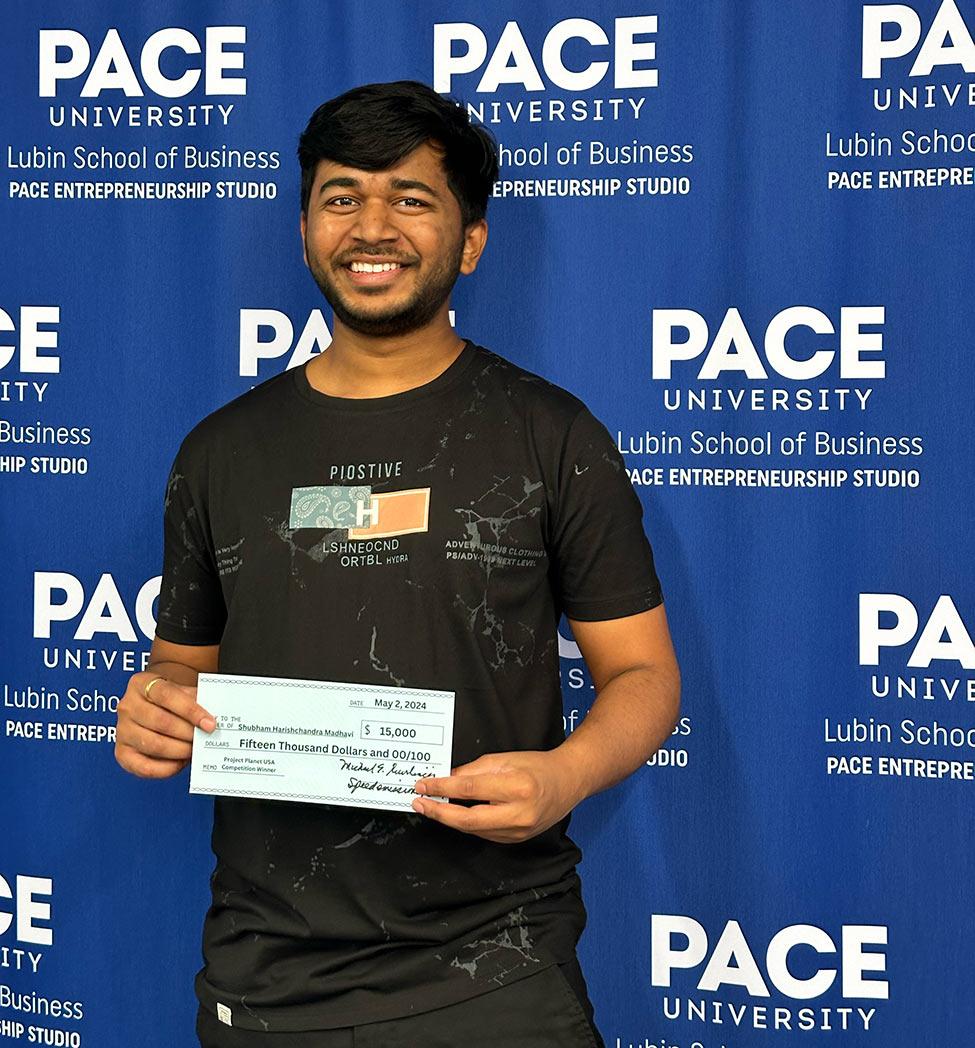
Through Project Planet USA, an initiative spearheaded by Speedemissions and The Front Yard at Pace University, students and faculty were encouraged to submit their concepts, innovative ideas, or solutions aimed at addressing climate change for a chance to win a cash grant in the amount of $15,000, plus professional mentoring, public relations, and network connections.
So, what does it take to win?
Shubham's winning concept is as ingenious as it is ambitious: bio-bricks harvested from plastic that has made its way into the ocean. These special bio-bricks would be designed to restore coral reefs while combating the looming threat of climate change. “My winning concept revolves around the creation of bio-bricks harvested from ocean plastic, which have the remarkable ability to convert CO2 into coral-restoring nutrients," Shubham explains. “This innovative approach not only addresses the urgent need to tackle plastic pollution in our oceans but also contributes to the restoration of coral reefs, which are vital ecosystems threatened by climate change.”
With the support of the grant and accompanying mentoring, Shubham envisions tangible impacts rippling across oceans and coastlines worldwide. "By removing ocean plastic and converting it into bio-bricks, we directly mitigate the harmful effects of plastic pollution on marine life and ecosystems," he says. But his vision extends far beyond mere mitigation. These bio-bricks, infused with the power to convert CO2 into coral-restoring nutrients, hold the potential to reshape entire ecosystems, bolstering biodiversity and fortifying coastal communities against the ravages of climate change.
“This innovative approach not only addresses the urgent need to tackle plastic pollution in our oceans but also contributes to the restoration of coral reefs, which are vital ecosystems threatened by climate change.”
The grant's resources offer Shubham a network of support—including mentorship—in his quest to bring his proposed idea into fruition. Professional mentoring promises guidance in navigating the turbulent waters of project management, while public relations support amplifies his message, rallying support from partners and funders alike. Network connections pave the way for collaborations, opening doors to a world of opportunities previously beyond reach. "Leveraging the grant's resources is crucial for enhancing the impact and reach of my project," Shubham asserts.
But Shubham's ambitions extend far beyond the confines of the grant period. His long-term goals are as vast as the ocean itself, encompassing the scaling up of bio-brick production, the expansion of the project to distant shores, and the integration of his innovation into existing reef restoration efforts. "Establishing partnerships with local communities, businesses, and governments" is key to sustaining impact, he emphasizes.
As Shubham charts a course towards a greener tomorrow, his journey serves as a beacon of hope in a world besieged by environmental crises. Through unwavering determination and boundless innovation, he proves that even the mightiest challenges can be overcome, one bio-brick at a time.
More from Pace
Anthony Moretto ’24 will graduate from Pace as the Pleasantville Campus 2024 Trustee Award Winner; an honor he earned by leveraging his academic talents into tangible impact for the Pace student community.
On Friday, April 26, students from Pace University's Seidenberg School of Computer Science and Information Systems experienced a day of inspiration and innovation at Google's New York City office.
Om Gaikhe (MS in Data Science ’24) is a committed senior at Pace University's Seidenberg School of Computer Science and Information Systems. Om blends rigorous academics with active campus engagement, delving deep into software development and innovative technologies.
Seidenberg Students Explore Innovation at Google NYC
On Friday, April 26, students from Pace University's Seidenberg School of Computer Science and Information Systems experienced a day of inspiration and innovation at Google's New York City office.

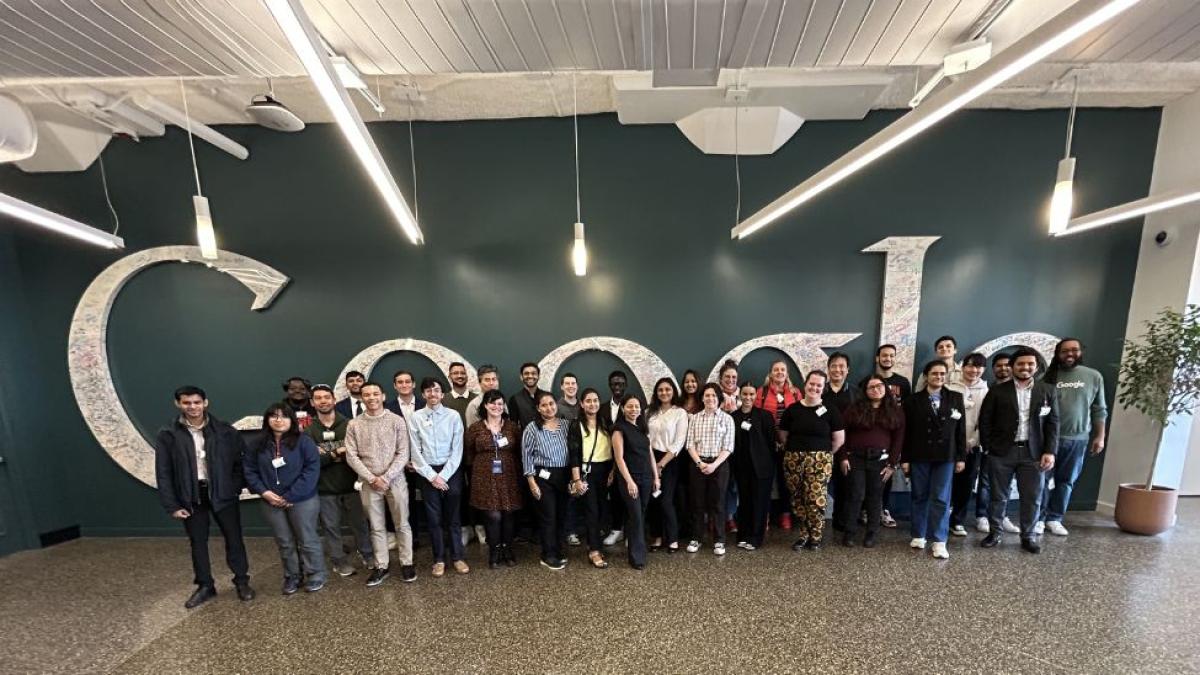
On Friday, April 26, students from Pace University's Seidenberg School of Computer Science and Information Systems experienced a day of inspiration and innovation at Google's New York City office. The visit, which featured a series of lightning talks, a facility tour, and extensive networking opportunities, was part of the school’s commitment to experiential learning, and Pace’s priority of enhancing educational experiences through real-world exposure.
The day was hosted by Tequila Lamar, an advocate for Education for Social Impact, who facilitated the engaging sessions that offered students firsthand insights into the tech industry. Highlight speakers included Vahid G., who shared his intriguing journey into technology and artificial intelligence, and Frankie Lamar, who discussed his path from a diverse background to finding success in the tech industry, and Toby Kovacs, who illustrated how a passion for sales can lead to substantial career achievements.
Students were especially excited to interact with professionals working in what many consider their dream job environment. "Being with students as they explored one of their absolute dream offices was a gift. As they get to interact and dream big about their futures, I absolutely get to do the same," reflected Katie Todd, Seidenberg’s Assistant Dean of Strategy and Engagement and the co-director of the school’s newly founded AI Lab.
The event was not only a chance for students to glimpse the inner workings of a leading global tech company but also served as a bridge between academic theories and practical, impactful tech applications.
As Seidenberg continues to facilitate these transformative experiences, its students are increasingly equipped to enter the tech field not just as participants, but as innovators and leaders.
Chase Selected as Periclean Faculty Leader, Receives Grant for New Course
Associate Professor of History Michelle Chase, PhD, has been selected as a Periclean Faculty Leader by Project Pericles and has received a $4,500 grant from the organization to create a new humanities course that incorporates a community-initiated project.
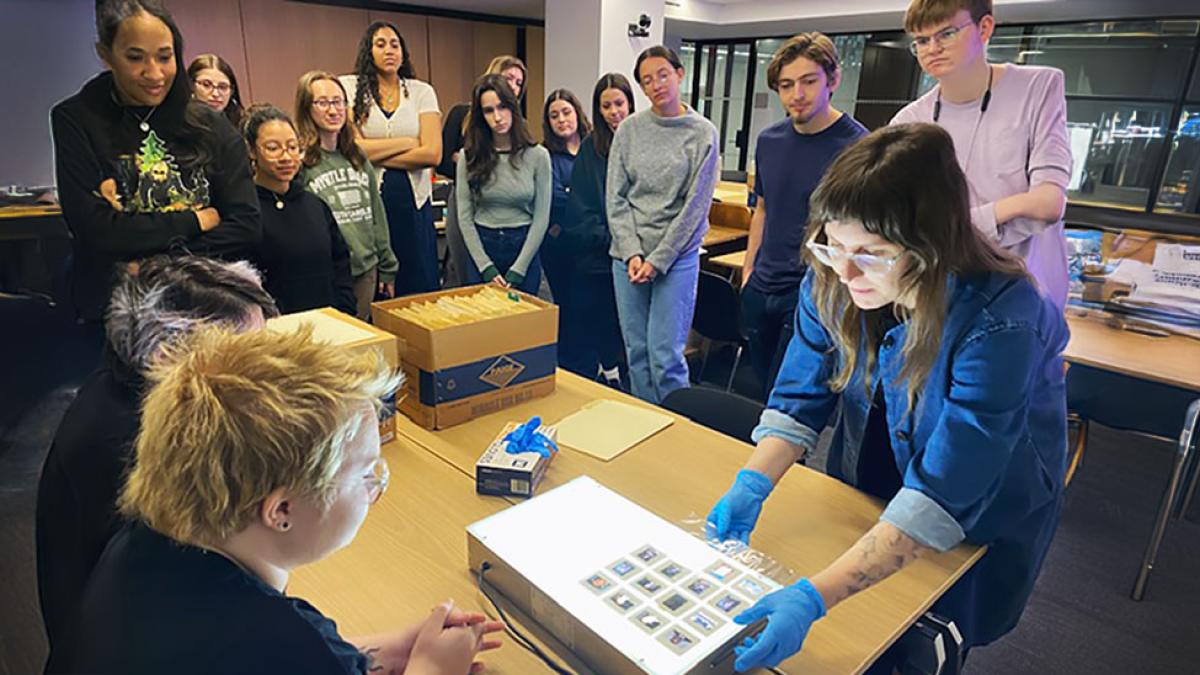
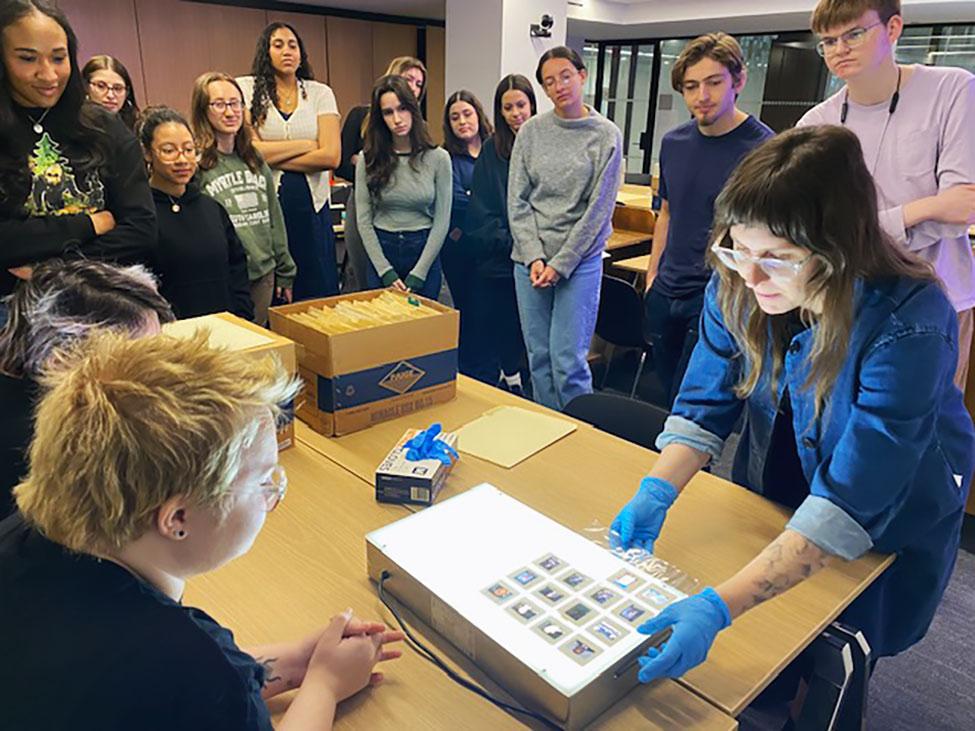
Associate Professor of History Michelle Chase, PhD, has been selected as a Periclean Faculty Leader by Project Pericles and has received a $4,500 grant from the organization to create a new humanities course that incorporates a community-initiated project.
Project Pericles is an organization that focuses on voter education and is a longtime partner of Pace University’s Center for Community Action and Research (CCAR) and the Pace Votes program. The course supported by the grant also must incorporate voter education through discussion of relevant civic issues.
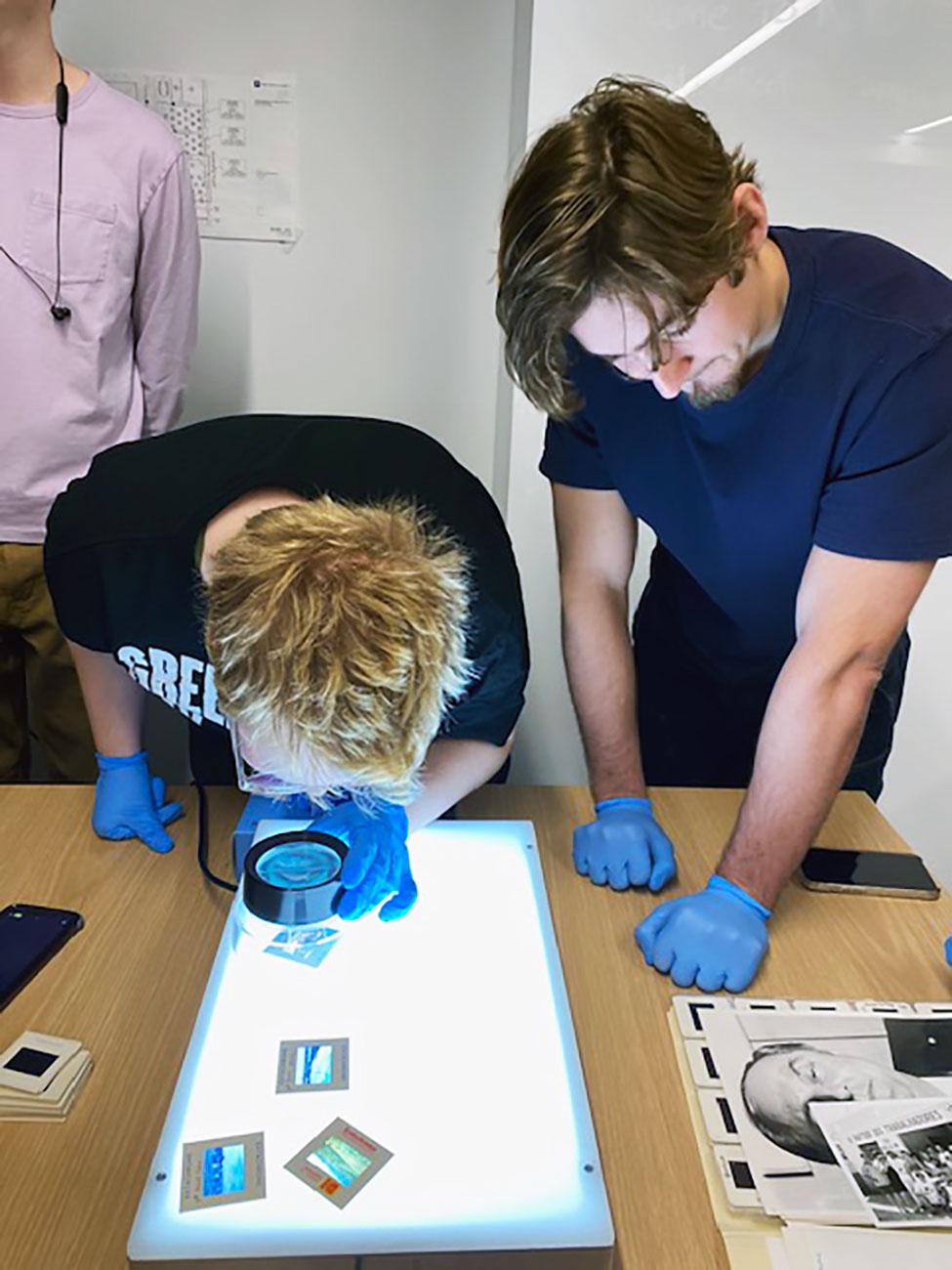
With the grant, Chase launched HIS 134: Modern Latin America this spring, a course that satisfies Pace’s civic engagement requirement. Through the course, Chase and her students are partnering with a local nonprofit, the North American Congress on Latin America (NACLA), an organization dedicated to advocating for social justice throughout the Americas, focusing specifically on Latin American migration to the United States, and U.S. foreign policy toward Latin America.
“I am thrilled about this grant because it gives my students an opportunity to explore in a hands-on way what it means to be an active historian and to contemplate ways that scholarship can intersect with community engagement,” said Chase.
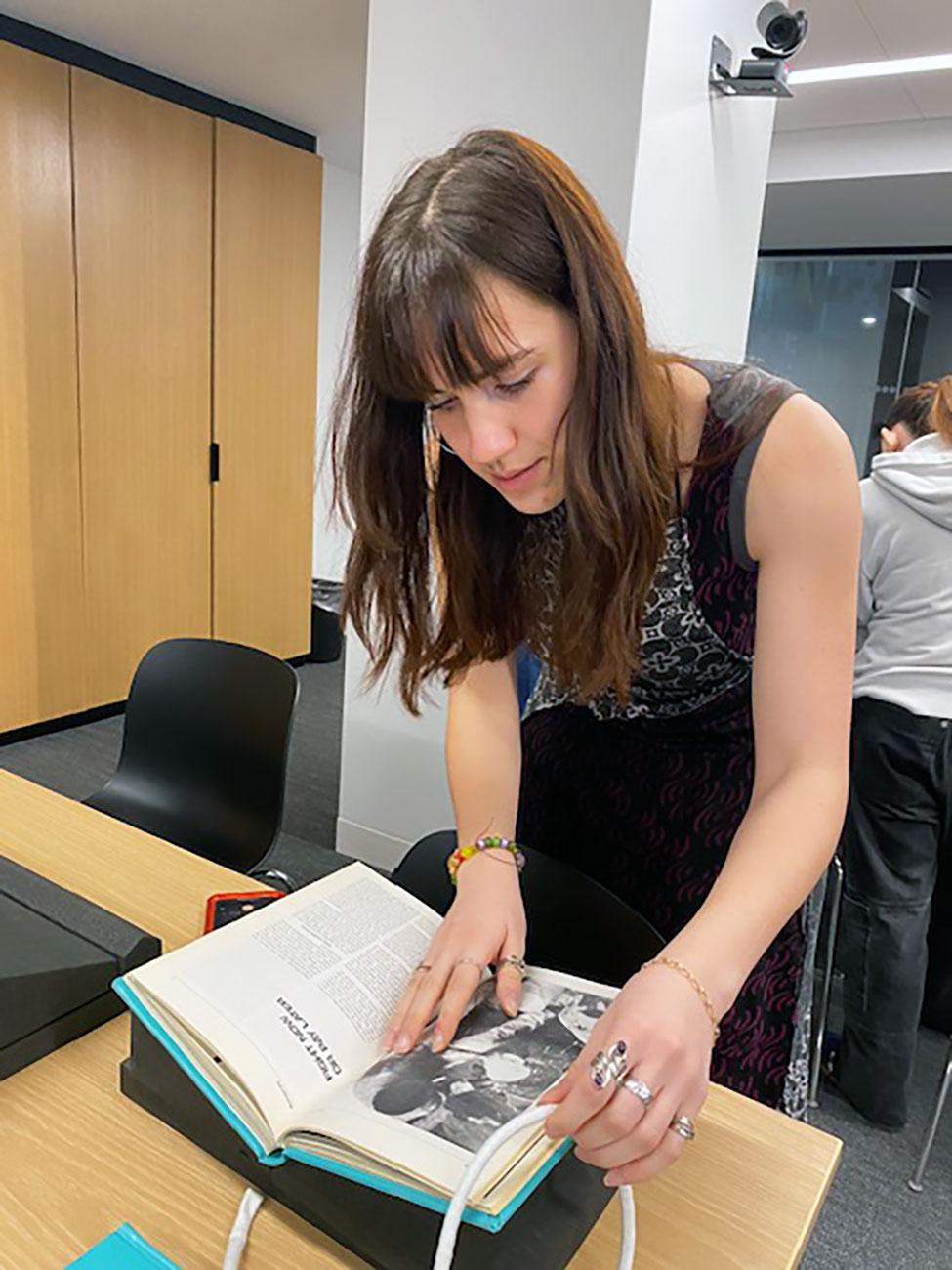
Students in the course combine the academic portion—studying recent history of Latin America—with civic engagement, exploring significant events in Latin America through NACLA’s archives. The archives, located in Washington Square, include photos of Fidel Castro speaking at a rally in Cuba, protests in Puerto Rico, agricultural projects in Mexico, and more.
“The entire class has been able to fully submerge ourselves into the NACLA’s work and try to live through what they were capturing,” said Ana Cristina Armstrong Matta ’26, History. “I’m from Puerto Rico so when I found a few archives that focused solely on my home, it was so special.”
The goal of the course is to curate an online exhibit for NACLA, with students carefully selecting photos to highlight significant events and photographic works.
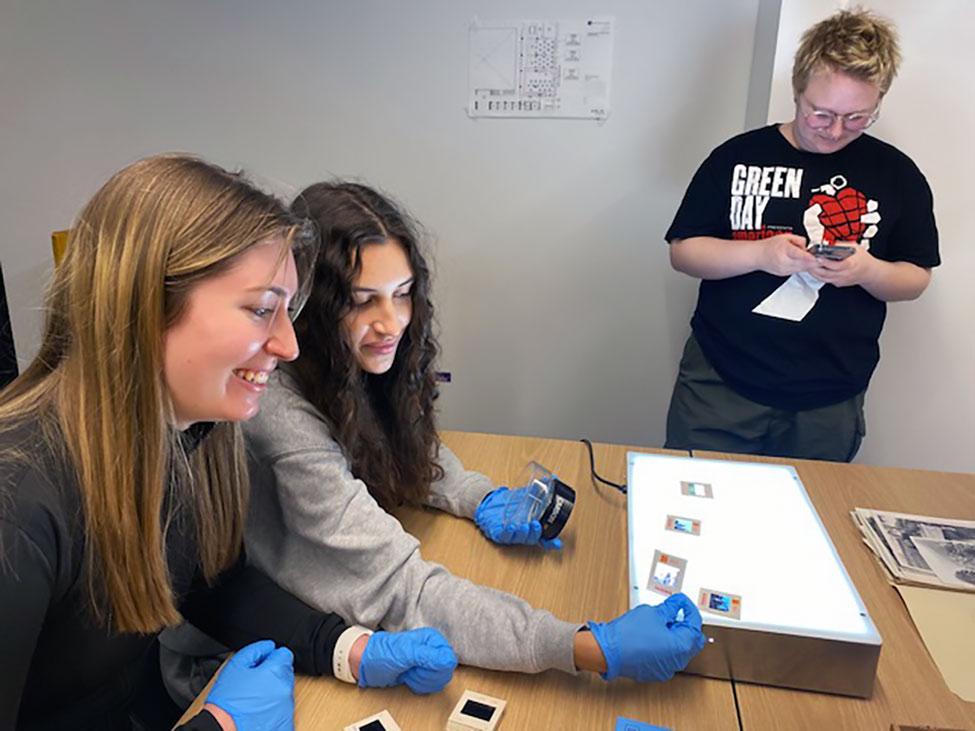
Chase and Armstrong Matta also presented on the course at an event hosted by CCAR entitled Leading with Civic Engagement: Faculty Info Session on Community-Engaged Work in Civic Engagement Courses on Friday, April 12.
“It is a very eye-opening course when looking at the actions of the U.S. towards Latin American,” said Armstrong Matta. “It’s a really great experience to not just have in class discussions, but to get to see the work and even contribute to NACLA’s mission.”
How The Constitution Fails To Protect The Environment
Haub Law Professor Katrina Kuh writes a piece in Nation of Change about how the Constitution fails to protect the environment.
"Beginning Of The End": Law Professor Says First Hush-Money Witness Set Up Case To "Bury Trump"
Professor Bennett Gershman speaks to Salon.com about ex-American Media Inc. David Pecker and Donald Trump’s relationship in the former president's New York hush-money trial.
Your Guide to Westchester County’s College Commencements
Westchester Magazine reports Pace University will hold its commencement ceremony on May 20 at the USTA Billie Jean King National Tennis Center in Queens.
